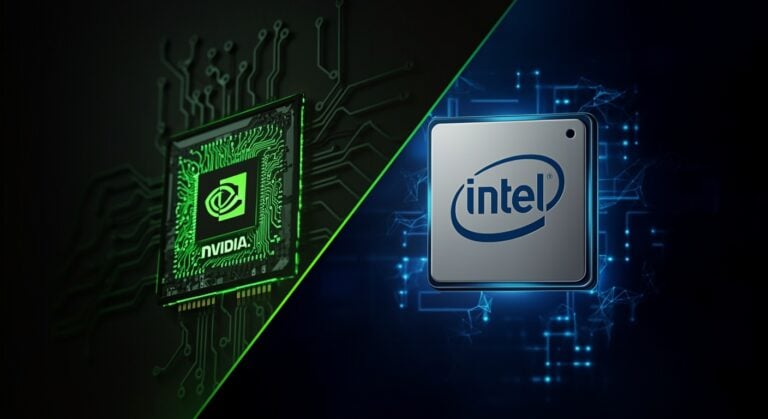Nvidia announces a $5 billion (€4.24 billion) investment in Intel. The collaboration is intended to assist Intel with the development of new processor chips and support Nvidia in its relations with the US government. This is a remarkable turnaround for Intel after years of disappointing results.
For consumers, this deal means that Intel will receive a customized graphics chip from Nvidia. The company can build this into its PC processors with fast connections. It could give Intel an advantage over AMD.
The deal means that Nvidia will acquire approximately 4 percent of Intel after the issuance of new shares. Nvidia is acquiring the stake for $23.28 per share, slightly below Intel’s closing price on Wednesday. However, it is higher than the $20.47 per share that the US government paid last month for an exceptional 10 percent stake.
“This historic collaboration tightly couples Nvidia’s AI and accelerated computing stack with Intel’s CPUs and the vast x86 ecosystem — a fusion of two world-class platforms,” said Nvidia CEO Jensen Huang in a statement.
It could also be a political move by Nvidia. The company is struggling to sell AI chips to China due to US restrictions. By supporting Intel, Nvidia is keeping the US government on its side.
Tip: China bans large tech companies from buying Nvidia chips
Technical collaboration
The investment goes beyond just money. Intel and Nvidia will jointly develop processor chips for data centers and PCs. Intel will design processors that Nvidia can combine with its AI chips. Nvidia’s proprietary technology will enable the chips to communicate with each other faster than was previously possible.
For Intel, the investment comes at a crucial moment. The company appointed a new CEO, Lip-Bu Tan, in March after years of disappointing performance. Tan was criticized for his Chinese connections, which led to a meeting in Washington and ultimately resulted in a 10 percent government stake.
Impact on competition
The deal could have significant consequences for other chip manufacturers. AMD, which competes with Intel in data centers, could lose out due to Nvidia’s support for Intel. TSMC, the Taiwanese manufacturer that currently makes Nvidia’s main processors, may also see work disappear to Intel.
After the news broke, AMD’s stock fell nearly 4 percent, while TSMC shares lost 2 percent. Intel, on the other hand, rose 30 percent in premarket trading, confirming the valuation of the investment.
The collaboration demonstrates how the semiconductor industry is evolving around AI. Fast connections between chips are becoming increasingly important because AI servers use multiple processors simultaneously for heavy calculations. With Intel as a partner, Nvidia can further expand its dominant position in AI hardware.
